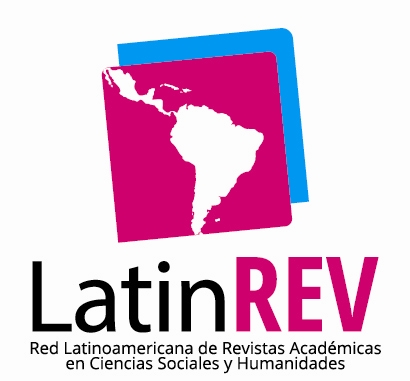La influencia de las redes sociales en la identidad cultural contemporánea
DOI:
https://doi.org/10.62325/10.62325/yachana.v14.n1.2025.955Palabras clave:
medios sociales, identidad cultural, cultura, cambio culturalResumen
Este trabajo cualitativo examina cómo las redes sociales afectan la identidad cultural en la era digital, destacando su rol como espacios de interacción que no solo reflejan sino también transforman prácticas culturales. Las redes sociales han facilitado un terreno fértil para la investigación sobre el impacto de estas plataformas en la identidad cultural, especialmente en comunidades rurales y migrantes, donde influyen en la autoexpresión y en la negociación de la identidad cultural. Para analizar esta relación, se utilizó el método PRISMA, revisando artículos académicos publicados entre 2019 y 2023 en bases de datos reconocidas, aplicando un análisis bibliométrico para identificar patrones en temas clave. Los resultados muestran que las redes sociales promueven la adaptación cultural y la creación de normas en un entorno globalizado, reflejando un fenómeno donde jóvenes y migrantes integran y adaptan valores individuales y colectivos. Estos espacios digitales permiten la experimentación y la consolidación de nuevas prácticas culturales, subrayando su impacto en la reconfiguración de la identidad cultural contemporánea.
Descargas
Citas
Al-Jbouri, E., Volk, A. A., Spadafora, N., & Andrews, N. C. Z. (2024). Friends, followers, peers, and posts: adolescents’ in-person and online friendship networks and social media use influences on friendship closeness via the importance of technology for social connection. Frontiers in Developmental Psychology, 2, 1419756. https://doi.org/10.3389/fdpys.2024.1419756
Alsaleh, D.A., Elliott, M.T., Fu, F.Q., & Thakur, R. (2019). Cross-cultural differences in the adoption of social media. Journal of Research in Interactive Marketing, 13(1), 119-140. https://doi.org/10.1108/JRIM-10-2017-0092
Angelini, F., Marino, C., & Gini, G. (2022). Friendship quality in adolescence: the role of social media features, online social support and e-motions. Current psychology (New Brunswick, N.J.), 1–17. Advance online publication. https://doi.org/10.1007/s12144-022-03564-3
Appel, G., Grewal, L., Hadi, R., & Stephen, A. (2020). The future of social media in marketing. Journal of the Academy of Marketing Science, 48, 79-95. http://tinyurl.com/5n872yym
Boyd, D. M., & Ellison, N. B. (2007). Social network sites: Definition, history, and scholarship. Journal of Computer-Mediated Communication, 13(1), 210–230. https://doi.org/10.1111/j.1083-6101.2007.00393.x
Chang, C.-W., & Chang, S.-H. (2023, July/September). The impact of Digital Disruption: Influences of Digital Media and Social Networks on Forming Digital Native`s Attitude. SAGE Open, 13(3), 1-10. http://tinyurl.com/2pbccyhp
Cobo, M. J., López-Herrera, A. G., Herrera-Viedma, E., & Herrera, F. (2011, January). An approach for detecting, quantifying, and visualizing the evolution of a research field: A practical application to the Fuzzy Sets Theory field. Journal of Informetrics, 5(1), 146-166. https://doi.org/10.1016/j.joi.2010.10.002
De Groote, D., & Van Ouytsel, J. (2022). Digital stress within early adolescents’ friendships – A focus group study from Belgium. Telematics and Informatics, 73, 101877. https://doi.org/10.1016/j.tele.2022.101877
Hällgren, C., & Björk, Å. (2023). Young people’s identities in digital worlds. International Journal of Information and Learning Technology, 40(1), 49-61. https://doi.org/10.1108/IJILT-06-2022-0135
Hamid, R. S., Abror, A., Anwar, S. M., & Hartati, A. (2022). The role of social media in the political involvement of millennials. Spanish Journal of Marketing – ESIC, 26(1), 61-79. https://doi.org/10.1108/SJME-08-2021-0151
Hsu, M.-H., Tien, S.-W., Lin, H.-C., & Chang, C.-M. (2015). Understanding the roles of cultural differences and socio-economic status in social media continuance intention. Information Technology & People, 28(1), 224-241. https://doi.org/10.1108/ITP-01-2014-0007
Hu, S., Gu, J., Liu, H., & Huang, Q. (2017). The moderating role of social media usage in the relationship among multicultural experiences, cultural intelligence, and individual creativity. Information Technology & People, 30(2), 265-281. https://doi.org/10.1108/ITP-04-2016-0099
Hu, S., Hu, L., & Wang, G. (2021). Moderating role of addiction to social media usage in managing cultural intelligence and cultural identity change. Information Technology & People, 34(2), 704-730. https://doi.org/10.1108/ITP-10-2019-0518
Hussenoeder F. S. (2022). Social network sites as learning environments and their implications for mental health. Frontiers in digital health, 4, 939740. https://doi.org/mcf4
Jain, P. (2018, November 20). Social Media: Impact on human behavior and society. Linkedin. http://tinyurl.com/jhakcrfp
Jonsson, J. (2023). Exploring the social and special role of social media for community entrepreneurship. Entrepreneurship & Regional Development, https://doi.org/mcf3
Kanchan, S., & Gaidhane, A. (2023). Social Media Role and Its Impact on Public Health: A Narrative Review. Cureus, 15(1), e33737. https://doi.org/jxqm
Lenhart, A. (2015, August 6). Teens, technology & friendships. Pew Research Center. https://tinyurl.com/bdhu932u
Liang, T. P., & Liu, Y. H. (2018, November 20). Research Landscape of Business Intelligence and Big Data analytics: A bibliometrics study. Expert Systems with Applications, 111, 2-10. https://doi.org/10.1016/j.eswa.2018.05.018
Moher, D., Liberati, A., Tetzlaff, J., Altman, D. G., & PRISMA Group (2009). Preferred reporting items for systematic reviews and meta-analyses: the PRISMA statement. PloS medicine, 6(7), e1000097. https://doi.org/10.1371/journal.pmed.1000097
Mutabazi, P. (2023, September 9). The Evolution of Social Media: How Did It Begin, and Where Could It Go Next? Linkedin. http://tinyurl.com/kypb4ex3
Rabbanee, F. K., Roy, R., Roy, S.K., & Sobh, R. (2023). Consumers’ digital self-extension and pro-brand social media engagement – the role of culture. European Journal of Marketing, 57(9), 2199-2236. https://doi.org/10.1108/EJM-01-2022-0074
Radwan, M. (2022, July 29). Effect of social media usage on the cultural identity of rural people: A case study of Bamha village, Egypt. Humanities and Social Sciences Communications, 9, Article number 248. https://doi.org/10.1057/s41599-022-01268-4
Russo, A. (2011, July). Transformations in Cultural Communication: Social Media, Cultural Exchange, and Creative Connections. Curator the Museum Journal 54(3), 327-346. https://doi.org/b6w9xm
Sawyer, R. (2011). The Impact of New Social Media on Intercultural Adaptation. Senior Honors Projects. Paper 242. http://tinyurl.com/mrxzcwba
Spiekerman, A. M., Guo, Y., Payton, J., Campione-Barr, N., Killoren, S. E., Rote, W. M., & Rose, A. J. (2023). Adolescents’ Online Connections with Friends during COVID-19: An Assessment of the Forms of Communication and Their Association with Emotional Adjustment. Children (Basel, Switzerland), 10(8), 1281. https://doi.org/10.3390/children10081281
Turkle, S. (2011). Alone Together. Why we expect more from Technology and Less from Each Other. Basic Books. https://tinyurl.com/3wsymhd9
Yau, A., Marder, B., & O’Donohoe, S. (2020). The role of social media in negotiating identity during the process of acculturation. Information Technology & People, 33(2), 554-575. https://doi.org/10.1108/ITP-09-2017-0305
Yuna, D., Xiaokun, L., Jianing, L., & Lu, H. (2022). Cross-Cultural Communication on Social Media: Review from the Perspective of Cultural Psychology and Neuroscience. Frontiers in psychology, 13, 858900. https://doi.org/10.3389/fpsyg.2022.858900
Zaw, H. (2018, September). The Impact of Social Media on Cultural Adaptation Process: Study on Chinese Government Scholarship Students. Advances in Journalism and Communication, 6(3), 75-89. https://doi.org/10.4236/ajc.2018.63007
Publicado
Cómo citar
Número
Sección
Licencia
Derechos de autor 2024 Yachana Revista Científica

Esta obra está bajo una licencia internacional Creative Commons Atribución-NoComercial 4.0.





















